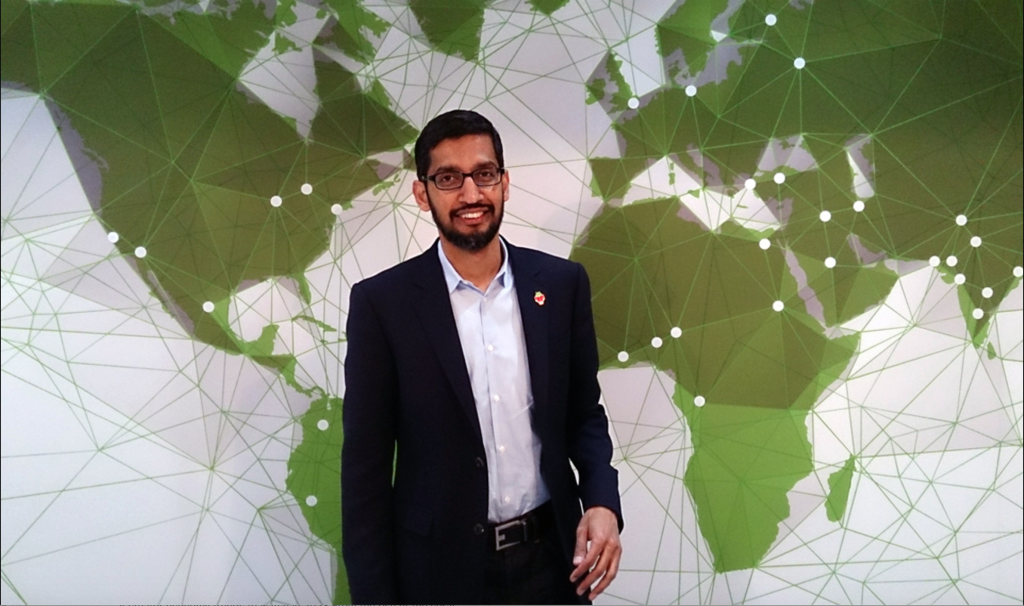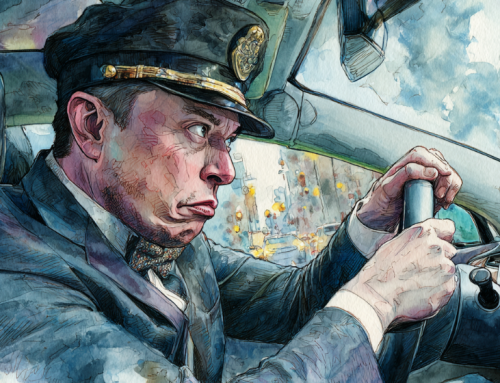
Google’s chief executive Sundar Pichai, who has emphasized the importance of AI to his company, is concerned about the loss of ad revenue if chatbots replace traditional search functions. (Source: Wikimedia Commons)
ChatGPT Has Sent Ripples through Google’s Future Plans for Development
What would you do if you went to your computer today to find something through Google, but Google was no longer there? Not many of us have thought about a Google-less world. However, the head of Google is worried about its future.
A rather lengthy piece on nytimes.com explains what has Sindar Pichai, Google’s CEO, so worried.
Nico Grant And Cade Metz have co-written the articleabout the latest chatbot from Open AI called ChatGPT.
Three weeks ago, an experimental chatbot called ChatGPT made its case to be the industry’s next big disrupter. It can serve up information in clear, simple sentences, rather than just a list of internet links. It can explain concepts in ways people can easily understand. It can even generate ideas from scratch, including business strategies, Christmas gift suggestions, blog topics, and vacation plans.
Although ChatGPT still has plenty of room for improvement, its release led Google’s management to declare a “code red.” For Google, this was akin to pulling the fire alarm. Some fear the company may be approaching a moment that the biggest Silicon Valley outfits dread — the arrival of an enormous technological change that could upend the business.
Most of us have weekly or daily visits to Google to have questions answered. And the search engine has plenty of room to display ads to us. That might change with ChatGPT.
Google Has A Chatbot, Too
Google has spent several years working on chatbots and, like other big tech companies, has aggressively pursued artificial intelligence technology. Google has already built a chatbot that could rival ChatGPT. In fact, the technology at the heart of OpenAI’s chatbot was developed by researchers at Google.
Called LaMDA, or Language Model for Dialogue Applications, Google’s chatbot received enormous attention in the summer when a Google engineer, Blake Lemoine, claimed it was sentient. This was not true, but the technology showed how much chatbot technology had improved in recent months.
Google may be reluctant to deploy this new tech as a replacement for online search, however, because it is not suited to delivering digital ads, which accounted for more than 80 percent of the company’s revenue last year.
Eighty percent is a huge amount to risk losing to an algorithm.
“No company is invincible; all are vulnerable,” said Margaret O’Mara, a professor at the University of Washington who specializes in the history of Silicon Valley. “For companies that have become extraordinarily successful doing one market-defining thing, it is hard to have a second act with something entirely different.”
As we mentioned this is not a quick article to read. Metz and Grant go to Google employees to dig deeper into Google’s approach to this possibly catastrophic challenge to its business model.
Sundar Pichai, Google’s chief executive, has been involved in a series of meetings to define Google’s AI strategy, and he has upended the work of numerous groups inside the company to respond to the threat that ChatGPT poses, according to a memo and audio recording obtained by The New York Times.
Employees have also been tasked with building AI products that can create artwork and other images, like OpenAI’s DALL-E technology, which has been used by more than three million people.
Have we seen a paradigm shift happening right before our eyes and ears? Quite likely, according to the experts.
“Last year, I was despondent that it was so hard to dislodge the iron grip of Google,” said Sridhar Ramaswamy, who previously oversaw advertising for Google, including Search ads, and now runs Neeva. “But technological moments like this create an opportunity for more competition.”
Stay tuned.
read more at nytimes.com







Leave A Comment